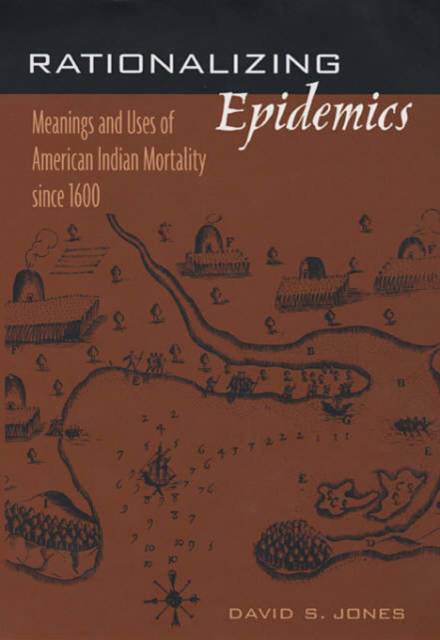
- Retrait gratuit dans votre magasin Club
- 7.000.000 titres dans notre catalogue
- Payer en toute sécurité
- Toujours un magasin près de chez vous
- Retrait gratuit dans votre magasin Club
- 7.000.0000 titres dans notre catalogue
- Payer en toute sécurité
- Toujours un magasin près de chez vous
Rationalizing Epidemics
Meanings and Uses of American Indian Mortality Since 1600
David S Jones
Livre relié | Anglais
71,45 €
+ 142 points
Description
Ever since their arrival in North America, European colonists and their descendants have struggled to explain the epidemics that decimated native populations. Century after century, they tried to understand the causes of epidemics, the vulnerability of American Indians, and the persistence of health disparities. They confronted their own responsibility for the epidemics, accepted the obligation to intervene, and imposed social and medical reforms to improve conditions. In Rationalizing Epidemics, David Jones examines crucial episodes in this history: Puritan responses to Indian depopulation in the seventeenth century; attempts to spread or prevent smallpox on the Western frontier in the eighteenth and nineteenth centuries; tuberculosis campaigns on the Sioux reservations from 1870 until 1910; and programs to test new antibiotics and implement modern medicine on the Navajo reservation in the 1950s. These encounters were always complex. Colonists, traders, physicians, and bureaucrats often saw epidemics as markers of social injustice and worked to improve Indians' health. At the same time, they exploited epidemics to obtain land, fur, and research subjects, and used health disparities as grounds for "civilizing" American Indians. Revealing the economic and political patterns that link these cases, Jones provides insight into the dilemmas of modern health policy in which desire and action stand alongside indifference and inaction.
Spécifications
Parties prenantes
- Auteur(s) :
- Editeur:
Contenu
- Nombre de pages :
- 308
- Langue:
- Anglais
Caractéristiques
- EAN:
- 9780674013056
- Date de parution :
- 30-05-04
- Format:
- Livre relié
- Format numérique:
- Genaaid
- Dimensions :
- 158 mm x 241 mm
- Poids :
- 576 g

Les avis
Nous publions uniquement les avis qui respectent les conditions requises. Consultez nos conditions pour les avis.






